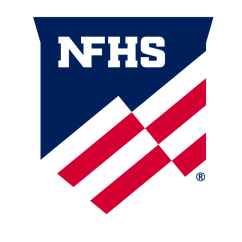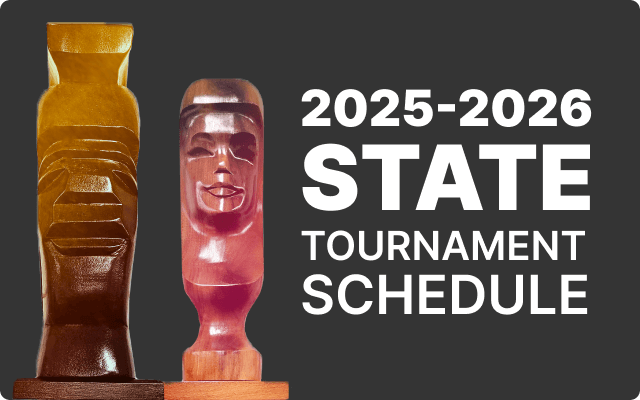The NFHS Voice

 The NFHS Voice
The NFHS Voice
NFHS-NFL Football Initiatives, Multiple Sport Participants in Super Bowl
Dr. Karissa L. Niehoff, NFHS Executive Director
The week leading up to the Super Bowl gains the attention of millions across the globe. Many are anticipating the actual match-up between the best professional football teams in the world, while others are looking forward to the unveiling of new television commercials or hosting watch parties.
At the high school level, it is an opportunity to showcase the value of all high school sports and activities, including football, and to evaluate the health and wellness – and ensure the growth – of these programs moving forward.
Earlier this week, the NFHS and the NFL announced another step in their partnership aimed at promoting the growth, understanding and support for football at the high school level with the debut of “Football Tackling,” a new free course offered through the NFHS Learning Center.
The course is designed to assist interscholastic coaches in teaching, evaluating and programming proper tackling techniques and is the latest project resulting from the NFHS-NFL partnership that was announced in September 2020.
Ed Passino, senior consultant for high school football promotion who was hired to lead the partnership, said “coaching education and player protection are primary pillars of the NFHS-NFL partnership, and this tackle course exemplifies that commitment. This course provides coaches a lens to not only teach and evaluate tackling, but it also delivers concepts to best develop confidence in players through appropriate contact load management, skill instruction and progression guidelines."
In addition to the football tackling course, the NFHS and NFL have been studying participation trends, and striving to increase confidence in students and parents that the sport is, in fact, more focused on risk minimization than ever before.
And while the NFHS and the NFL have been working together to enhance the long-term viability of football – both for the million students who compete in the sport annually and the three to five percent who will continue to play at higher levels – the NFHS continues to promote the value of competing in as many sports and activity programs as possible.
The journey to the Super Bowl for most of the participants in this weekend’s game began in high school – but not just on the football field on Friday nights. Contrary to what many people think, arriving on the world’s biggest football stage did not begin by playing the sport year-round. Instead, they became some of the sport’s top prospects by playing multiple sports in high school.
Several of the players in Super Bowl LVI participated in three high school sports, topped by Bengals’ quarterback Joe Burrow. As a senior at Athens High School in The Plains, Ohio, Burrow won Mr. Football honors in Ohio, was first-team all-state as a point guard on the basketball team and also participated in track and field.
Bengals’ wide receiver Tyler Boyd was a three-sport (football, basketball, baseball) standout at Clairton (Pennsylvania) High School, which included leading the football team to a 63-1 record in four years. Rams’ wide receiver Odell Beckham Jr. participated in football, basketball, and track and field – and drumline – at Isidore Newman High School in New Orleans, Louisiana.
Many others were two-sport stars, including Rams’ quarterback Matthew Stafford, who teamed with Los Angeles Dodgers’ pitcher Clayton Kershaw in football and baseball at Highland Park High School in Dallas. Stafford’s top receiver Cooper Kupp, who in addition to playing football at Davis High School in Yakima, Washington, helped the school’s basketball team to the Washington Interscholastic Activities Association Class 4A Championship as a senior.
In addition, the eight quarterbacks who reached the divisional round of the NFL playoffs played a total of 24 sports in high school, including Tennessee’s Ryan Tannehill, who was a four-sport standout at Big Spring (Texas) High School.
Playing multiple sports in high school is truly a winning formula. In addition to enhancing chances for a college scholarship and playing a sport at the highest level, there are innumerable benefits for the 95 percent of high school athletes who will not play at higher levels.
Multiple-sport participants have a reduced risk of overuse injuries, are able to learn from multiple coaches, participate in cross-training which leads to better athleticism, have better mental development and teamwork skills, and have a reduced chance of burnout in sports. Further, students can enjoy multiple activities concurrently, such as participation on a sports team while also belonging to a performing arts group.
Whether the goal is to participate in high school sports and activities to have fun with their peers, or to achieve a college athletic scholarship, or to be a lifelong participant, the best route to achieving a successful, healthy balance in life is to participate in multiple sports and other activities.
Dr. Karissa L. Niehoff is in her seventh year as chief executive officer of the National Federation of State High School Associations (NFHS) in Indianapolis, Indiana. She is the first female to head the national leadership organization for high school athletics and performing arts activities and the sixth full-time executive director of the NFHS. She previously was executive director of the Connecticut Association of Schools-Connecticut Interscholastic Athletic Conference for seven years.









